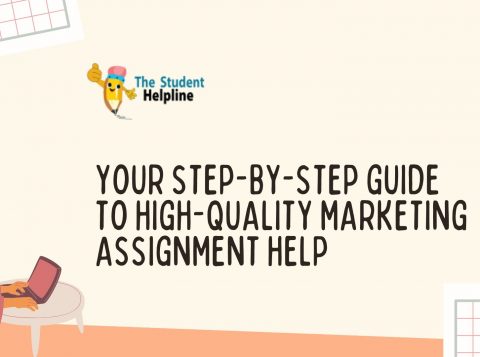
From Beginner to Pro: Essential Cod
In today’s tech-driven world, coding is more than just writing lines of code; it’s about problem-solving, logical thinking, and creating efficient programs. Whether you’re an aspiring software developer, a data scientist, or someone exploring programming as a hobby, mastering key coding skills is crucial for success.
With so many programming languages, frameworks, and tools available, it can be overwhelming to know where to start. This blog will break down the essential skills every coder must master to transition from a beginner to a pro. If you’re struggling with assignments, or need assistance, consider using services like “Do My Programming Assignment“ to get expert help and boost your learning.
1. Understanding Data Structures and Algorithms
Data structures and algorithms (DSA) are the foundation of programming. They help optimize code performance and solve complex problems efficiently. Understanding key data structures such as:
-
Arrays and Lists – Used for storing collections of elements.
-
Stacks and Queues – Essential for managing data in a Last-In-First-Out (LIFO) or First-In-First-Out (FIFO) manner.
-
Linked Lists – Helpful when dynamic memory allocation is required.
-
Trees and Graphs – Widely used in AI, networking, and database indexing.
Similarly, algorithms such as sorting (Bubble Sort, Quick Sort), searching (Binary Search), and dynamic programming are critical for optimizing performance. Learning and practicing DSA on platforms like LeetCode, CodeChef, and GeeksforGeeks will help you improve your problem-solving skills.
2. Mastering a Programming Language
While learning multiple languages is beneficial, it’s essential to master at least one programming language deeply. The most popular languages for different fields include:
-
Python – Ideal for AI, data science, and web development.
-
JavaScript – The backbone of web development.
-
Java – Popular for backend systems, mobile applications, and enterprise software.
-
C++ – A go-to choice for competitive programming and system development.
Focusing on one language initially helps build strong problem-solving abilities before expanding to others.
3. Debugging Like a Pro
Writing code is just one part of programming; debugging is equally important. Efficient debugging helps identify and fix errors quickly. Here are some effective debugging techniques:
-
Using Print Statements – Simple yet effective for checking variable values and program flow.
-
Using Debugging Tools – IDEs like VS Code, PyCharm, and IntelliJ come with built-in debuggers.
-
Reading Error Messages Carefully – Understanding compiler and runtime errors saves time in troubleshooting.
Developers who master debugging spend less time fixing bugs and more time building solutions.
4. Writing Clean and Maintainable Code
Good programmers write code that is easy to read, understand, and modify. Best practices for clean code include:
-
Using meaningful variable and function names – Instead of
x=10, usetotal_price=10. -
Following indentation and formatting – A well-structured code improves readability.
-
Commenting code where necessary – Helps others (and your future self) understand the logic.
-
Keeping functions short and modular – A function should perform only one task.
Following coding standards like PEP 8 (Python) or Google Java Style Guide ensures consistency in larger projects.
5. Version Control with Git and GitHub
Version control is a must-have skill for every developer, whether working solo or in a team. Git helps track code changes and collaborate seamlessly. Learning Git commands like:
-
git init– Initialize a repository. -
git add .– Add files to staging. -
git commit -m "Message"– Save changes with a message. -
git push– Upload changes to GitHub.
Knowing Git helps prevent data loss, roll back changes, and work efficiently on large projects.
6. Understanding APIs and Web Development
Most modern applications rely on APIs (Application Programming Interfaces) to fetch and send data. Learning to work with RESTful APIs is crucial, especially if you’re into web or mobile development.
A basic understanding of:
-
HTTP methods (GET, POST, PUT, DELETE)
-
JSON format for data exchange
-
API authentication using OAuth or tokens
Additionally, knowing front-end technologies (HTML, CSS, JavaScript) and back-end frameworks (Node.js, Django, Flask) enhances your development skills.
7. Problem-Solving and Competitive Programming
The best way to improve as a coder is by solving problems regularly. Competitive programming helps sharpen logic, speed, and coding efficiency. Websites like:
-
LeetCode – Great for interview preparation.
-
Codeforces – Ideal for competitive programming.
-
HackerRank – Useful for learning new skills.
Solving daily coding challenges strengthens your problem-solving ability and prepares you for coding interviews.
8. Learning About Software Development Life Cycle (SDLC)
Understanding SDLC helps in building real-world applications. Key phases include:
-
Planning – Identifying project requirements.
-
Design – Structuring the software architecture.
-
Development – Writing the actual code.
-
Testing – Ensuring bug-free performance.
-
Deployment & Maintenance – Launching and updating the application.
Learning Agile, Scrum, and DevOps methodologies helps programmers collaborate efficiently in teams.
For students seeking assistance with their assignments, services like Do My Assignment for Me Australia offer professional help to ensure your academic success.
Conclusion
Becoming a great coder takes practice, patience, and a willingness to learn. By mastering data structures, debugging, clean coding practices, version control, APIs, and problem-solving, you can build a strong foundation in programming.
Continuous learning and hands-on coding are key to growing in the tech world. Whether you’re a beginner or looking to refine your skills, staying updated with new technologies and practicing coding regularly will set you apart in the ever-evolving programming industry.
















